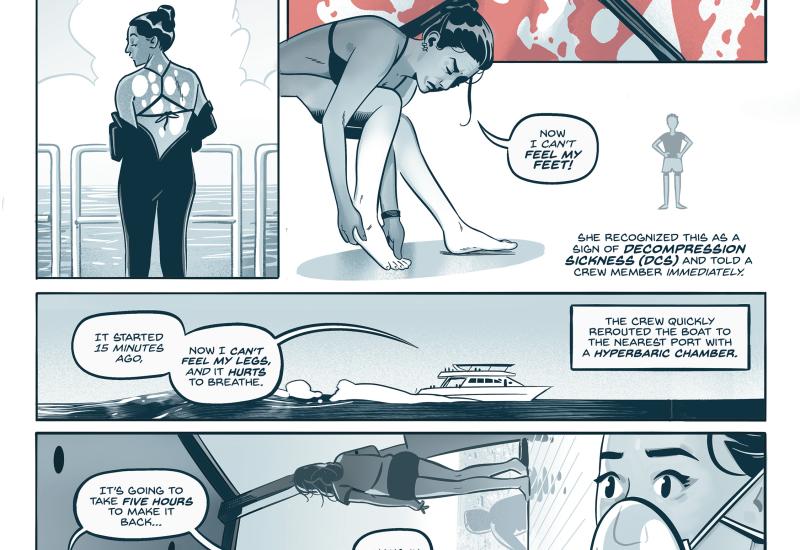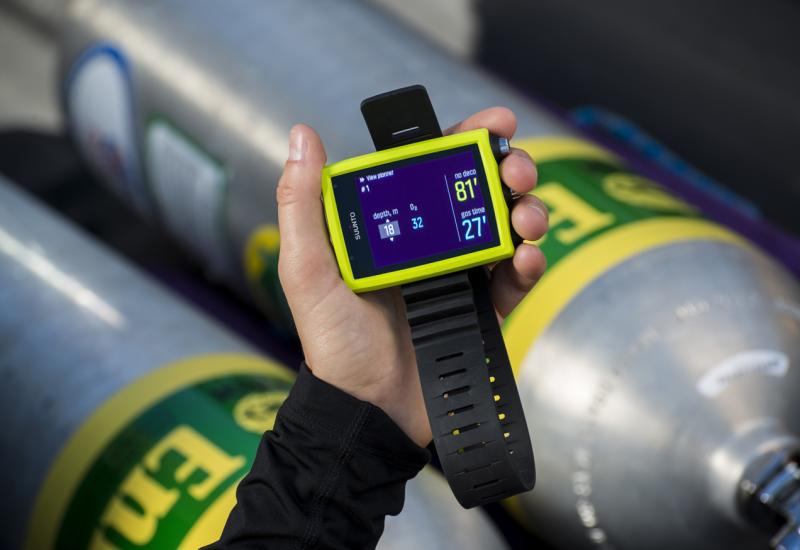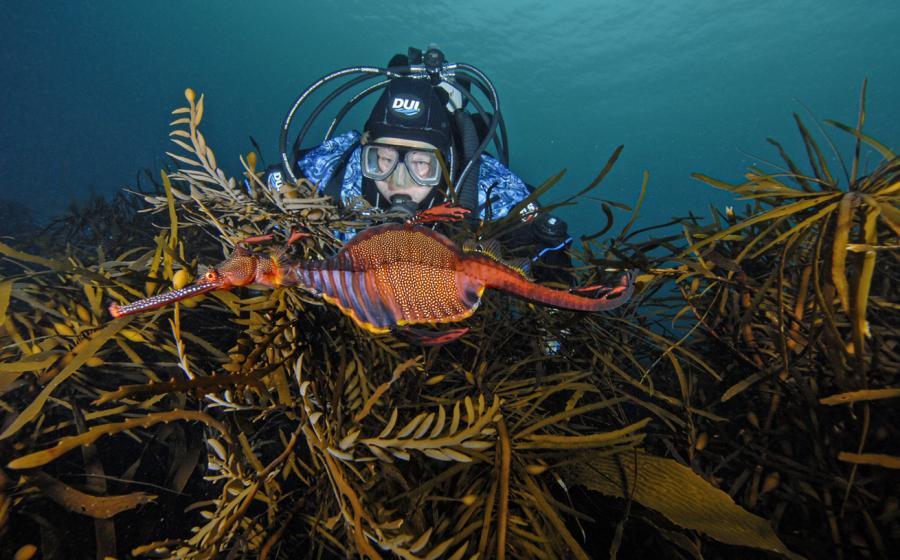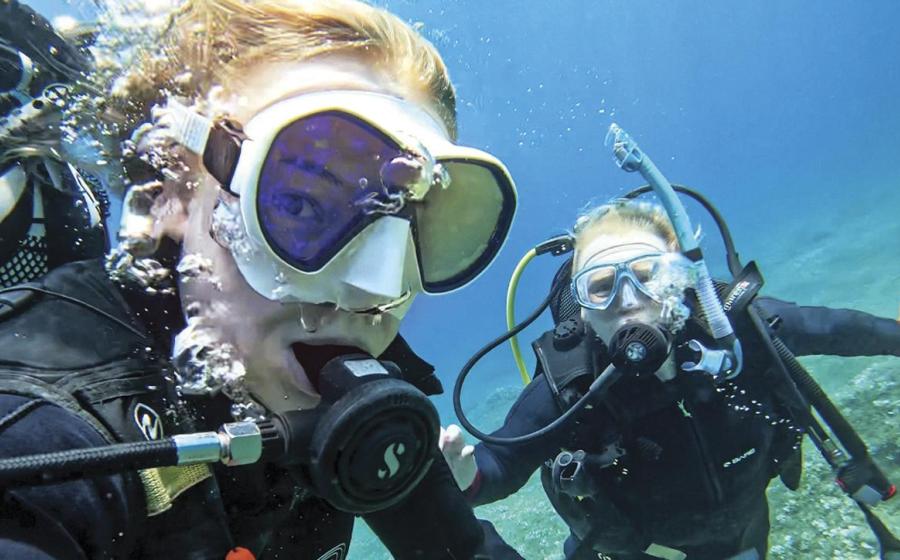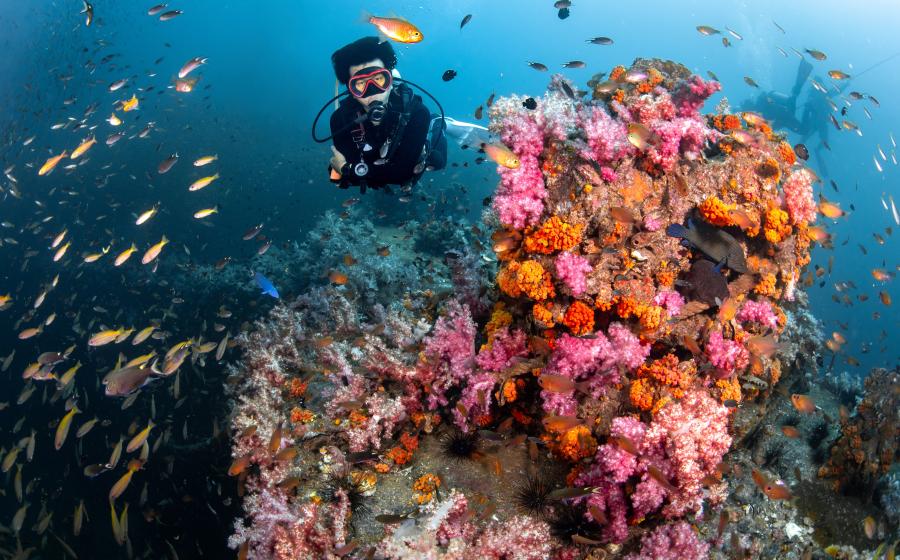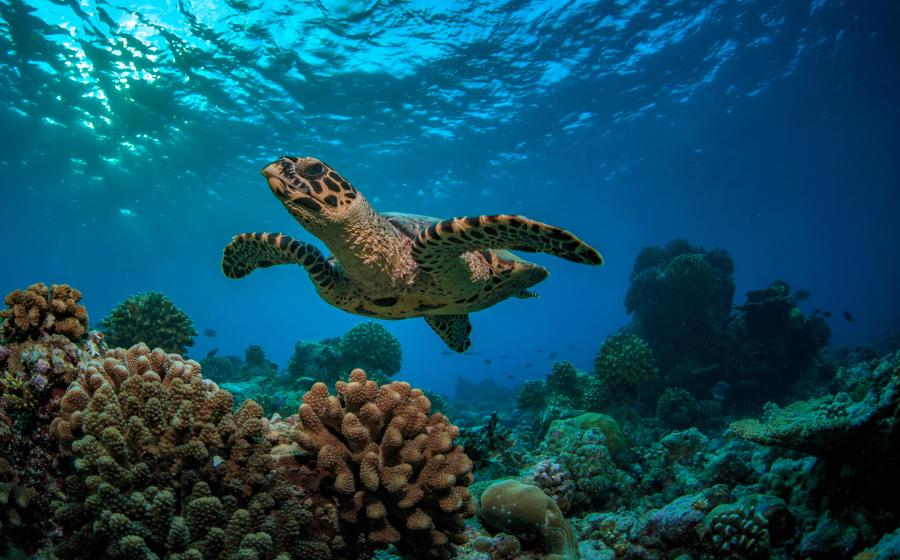Diving After the Bends and Other Scuba FAQs
March 2001
By Ernest Campbell
Can I Dive After Getting Bent?
Ed.'s Note: Answers to questions are offered as information only and not as medical diagnosis or advice and should always be used in conjunction with advice from your personal diving physician.
I read an article that said because decompression illness can cause subtle but lasting changes in the circulatory system, doctors recommend that someone who has suffered the bends never dive again. Is this true?
via e-mail
Not entirely. There are many different forms of decompression illness. Some leave few indications of its presence; but some leave significant scarring, particularly in the central nervous system.
Many physicians believe a person should not return to diving if he or she has experienced severe neurological spinal or cerebral decompression illness (Type II) with residual neurological symptoms. One of the reasons for this is the known increased risk of recurrent decompression illness in the area of scarring from the previous sites of the bubbles.
The recommendations for diving after a bout with the bends:
-
Type I DCS--If uncomplicated and produced by exceeding dive profiles or ascent rates, a diver may return to diving in four weeks.
-
Type I DCS, unexpected--Should return to diving only after ruling out diseases and factors that might increase susceptibility. Change of diving to a more conservative pattern.
-
Complicated Type I; neurological and other Type II DCS--Return to diving in a limited manner (no decompression dives, bottom times halved, maximum depth 50 feet and surface intervals of six hours) one month after identifying all causes and undergoing full neuropsychological assessment.
I Want To Dive, But I'm Scared of Fish
I'd like to dive, but, believe it or not, I am scared of fish, even the tiny ones. Could I be a shark's next meal?
via e-mail
It's not a silly question. Whether or not you learn to dive depends mainly upon how severely affected you are by your fears of being harmed by some big fish or predator. If you cannot get these thoughts out of your mind while diving, then you may not be able to do the many tasks that you're expected to during a dive.
We become visitors in the ocean when we dive for very brief intervals. The fish live there all the time and it is their world. Very few of these creatures pay us any attention whatsoever, and if they do, it is usually to get out of our way. Shark attacks on divers are very rare. In fact, for the 10-year period from 1987 to 1997, DAN reported no deaths from shark attacks in its annual report on diving fatalities.
Should Older Divers Restrict Their Depths
My doctor says that after age 50 you should restrict your maximum diving depth to 40 feet. He said there is a place in the base of your brain that retains some pockets of air that can affect your brain. I dive regularly and I am 68. Is this true?
via e-mail
It's not true. There are no air bubbles at the base of the brain, and diving after 50 years of age requires no depth restriction to 40 feet.
There is some indication that as we age we are more prone to a decompression accident, but this requires only a sensible reduction in depth and time at depth, with conservative ascents and safety stops.
Can I Dive With Leukemia?
Two years ago I was diagnosed with hairy cell leukemia. Since treatment, my blood counts have been normal. I feel great and was diving before this was diagnosed, with no problems. Is there any reason for me not to be diving now?
via e-mail
Congratulations on having had a great response to treatment. You should seek a physician knowledgeable about dive medicine to recertify you as fit for diving. The doctor will pay special attention to immuno-suppression and/or bone marrow suppression from the medication--with the possibility of anemia and lowered white blood cell counts. If you're anemic, you should not dive due to the dangers of a low oxygen-carrying potential and hypoxia at depth. Hemoglobin levels below 12 Gm/dl are dangerous.
Pulmonary changes from anti-cancer medications should also be looked for. If you are taking any other medications, such as a blood factor that stimulates the production of white blood cells, there can be mild to moderate bone pain, which might be confusing if there were the possibility of a decompression accident.
With normal blood counts and no evidence of immuno-suppression, your physician should be able to certify you for return to diving.
Is It Safe to Dive with a Spinal Cord Injury?
Nearly a year ago, I fell from a utility pole and sustained a serious compression/burst fracture of my T12 vertebra. After months of pain and physical therapy, I am back to work and trying to resume normal life. The only time I am truly free of pain is when I'm diving, but my doctor recommends that I discontinue diving. I get some carry-over relief after my dives that can last for days. Also, I take no medication for pain other than an occasional Tylenol. Is there therapeutic value from diving for people with similar injuries?
via e-mail
It is possible to dive after suffering a spinal cord injury, as long as there is no permanent damage. In your case, however, I agree with your treating physician. There are several concerns you should be aware of:
-
A possible link between spinal cord decompression sickness after spine trauma.
-
The disruption of blood supply to the area where the fractures occurred or surgery was performed--the formation of scar tissue and altered blood flow may not allow for the most effective off-gassing of nitrogen from surrounding tissue once it is absorbed during the dive.
-
If there is any neurological damage and the diver suffers a spinal bend when diving, recompression treatment is likely to be more difficult and there will be greater residual deficit after treatment.
How Soon Can I Return to Diving After Torn Cartilage Is Repaired?
I am planning to have an arthroscopy to repair torn cartilage in my knee. The orthopedic surgeon said I could return to diving after the incisions have healed (no scabs) or in two weeks, whichever is sooner. What's your opinion?
via e-mail
Two weeks is quite reasonable. Arthroscopy causes minimal trauma and very little alteration of the blood supply of the joint, thereby reducing the chance of joint damage from bubbles. The gas used during the operation in the joint is rapidly absorbed and poses no threat from barotrauma. You should record the degree of pain and discomfort in the knee before you dive in case there is any question regarding a decompression accident affecting the joint.
_Ernest S. Campbell, M.D., FACS, makes his home in Orange Beach, Ala. He is a retired surgeon, avid diver and webmaster of "Diving Medicine Online" (www.scuba-doc.com).
Please send your dive medicine questions to RSD, 6600 Abercorn St., Suite 208, Savannah, GA 31405. Fax: (912) 351-0735. E-mail: [email protected]._
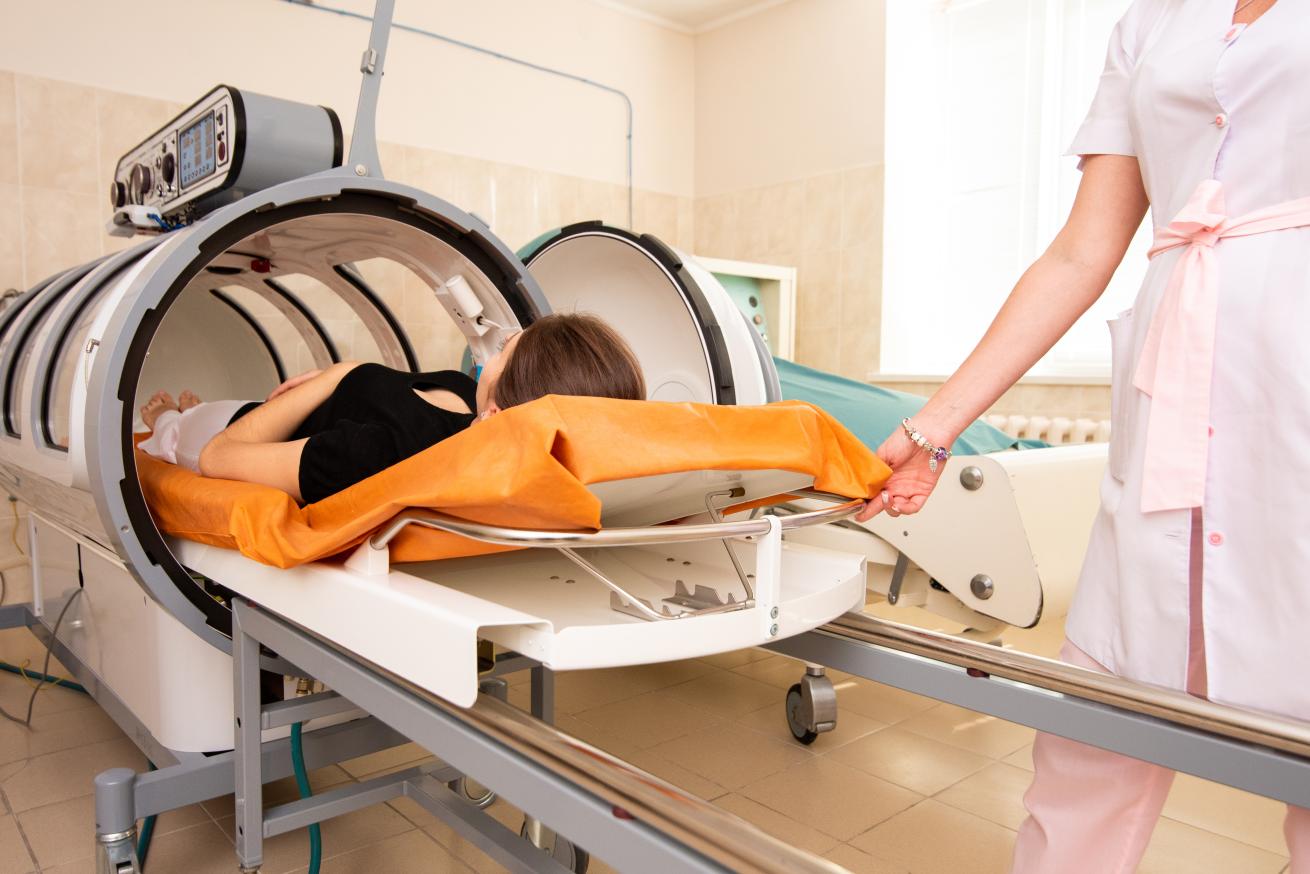
Shutterstock.com/Nakleyka
Can I Dive After Getting Bent?
Ed.'s Note: Answers to questions are offered as information only and not as medical diagnosis or advice and should always be used in conjunction with advice from your personal diving physician.
I read an article that said because decompression illness can cause subtle but lasting changes in the circulatory system, doctors recommend that someone who has suffered the bends never dive again. Is this true?
via e-mail
Not entirely. There are many different forms of decompression illness. Some leave few indications of its presence; but some leave significant scarring, particularly in the central nervous system.
Many physicians believe a person should not return to diving if he or she has experienced severe neurological spinal or cerebral decompression illness (Type II) with residual neurological symptoms. One of the reasons for this is the known increased risk of recurrent decompression illness in the area of scarring from the previous sites of the bubbles.
The recommendations for diving after a bout with the bends:
Type I DCS--If uncomplicated and produced by exceeding dive profiles or ascent rates, a diver may return to diving in four weeks.
Type I DCS, unexpected--Should return to diving only after ruling out diseases and factors that might increase susceptibility. Change of diving to a more conservative pattern.
Complicated Type I; neurological and other Type II DCS--Return to diving in a limited manner (no decompression dives, bottom times halved, maximum depth 50 feet and surface intervals of six hours) one month after identifying all causes and undergoing full neuropsychological assessment.
Related Reading: What Are the Bends in Scuba Diving?
I Want to Dive, But I'm Scared of Fish
I'd like to dive, but, believe it or not, I am scared of fish, even the tiny ones. Could I be a shark's next meal?
via e-mail
It's not a silly question. Whether or not you learn to dive depends mainly upon how severely affected you are by your fears of being harmed by some big fish or predator. If you cannot get these thoughts out of your mind while diving, then you may not be able to do the many tasks that you're expected to during a dive.
We become visitors in the ocean when we dive for very brief intervals. The fish live there all the time and it is their world. Very few of these creatures pay us any attention whatsoever, and if they do, it is usually to get out of our way. Shark attacks on divers are very rare. In fact, for the 10-year period from 1987 to 1997, DAN reported no deaths from shark attacks in its annual report on diving fatalities.
Should Older Divers Restrict Their Depths
My doctor says that after age 50 you should restrict your maximum diving depth to 40 feet. He said there is a place in the base of your brain that retains some pockets of air that can affect your brain. I dive regularly and I am 68. Is this true?
via e-mail
It's not true. There are no air bubbles at the base of the brain, and diving after 50 years of age requires no depth restriction to 40 feet.
There is some indication that as we age we are more prone to a decompression accident, but this requires only a sensible reduction in depth and time at depth, with conservative ascents and safety stops.
Can I Dive With Leukemia?
Two years ago I was diagnosed with hairy cell leukemia. Since treatment, my blood counts have been normal. I feel great and was diving before this was diagnosed, with no problems. Is there any reason for me not to be diving now?
via e-mail
Congratulations on having had a great response to treatment. You should seek a physician knowledgeable about dive medicine to recertify you as fit for diving. The doctor will pay special attention to immuno-suppression and/or bone marrow suppression from the medication--with the possibility of anemia and lowered white blood cell counts. If you're anemic, you should not dive due to the dangers of a low oxygen-carrying potential and hypoxia at depth. Hemoglobin levels below 12 Gm/dl are dangerous.
Pulmonary changes from anti-cancer medications should also be looked for. If you are taking any other medications, such as a blood factor that stimulates the production of white blood cells, there can be mild to moderate bone pain, which might be confusing if there were the possibility of a decompression accident.
With normal blood counts and no evidence of immuno-suppression, your physician should be able to certify you for return to diving.
Is it Safe to Dive With a Spinal Cord Injury?
Nearly a year ago, I fell from a utility pole and sustained a serious compression/burst fracture of my T12 vertebra. After months of pain and physical therapy, I am back to work and trying to resume normal life. The only time I am truly free of pain is when I'm diving, but my doctor recommends that I discontinue diving. I get some carry-over relief after my dives that can last for days. Also, I take no medication for pain other than an occasional Tylenol. Is there therapeutic value from diving for people with similar injuries?
via e-mail
It is possible to dive after suffering a spinal cord injury, as long as there is no permanent damage. In your case, however, I agree with your treating physician. There are several concerns you should be aware of:
A possible link between spinal cord decompression sickness after spine trauma.
The disruption of blood supply to the area where the fractures occurred or surgery was performed--the formation of scar tissue and altered blood flow may not allow for the most effective off-gassing of nitrogen from surrounding tissue once it is absorbed during the dive.
If there is any neurological damage and the diver suffers a spinal bend when diving, recompression treatment is likely to be more difficult and there will be greater residual deficit after treatment.
How Soon Can I Return to Diving After Torn Cartilage Is Repaired?
I am planning to have an arthroscopy to repair torn cartilage in my knee. The orthopedic surgeon said I could return to diving after the incisions have healed (no scabs) or in two weeks, whichever is sooner. What's your opinion?
via e-mail
Two weeks is quite reasonable. Arthroscopy causes minimal trauma and very little alteration of the blood supply of the joint, thereby reducing the chance of joint damage from bubbles. The gas used during the operation in the joint is rapidly absorbed and poses no threat from barotrauma. You should record the degree of pain and discomfort in the knee before you dive in case there is any question regarding a decompression accident affecting the joint.
_Ernest S. Campbell, M.D., FACS, makes his home in Orange Beach, Ala. He is a retired surgeon, avid diver and webmaster of "Diving Medicine Online" (www.scuba-doc.com).


